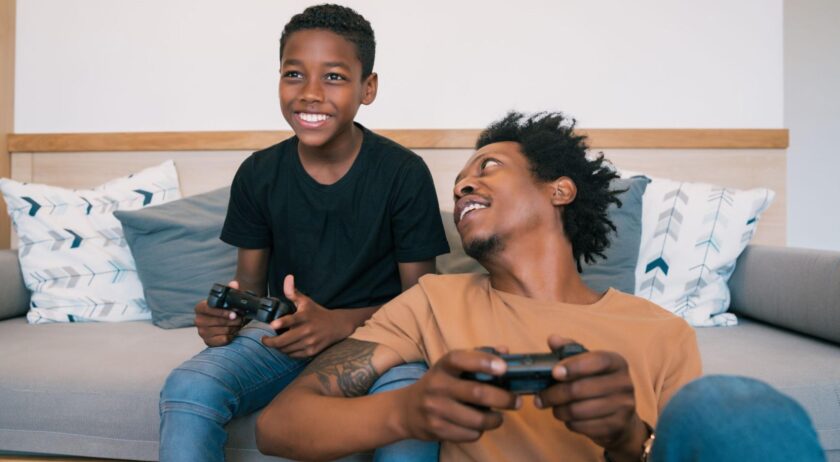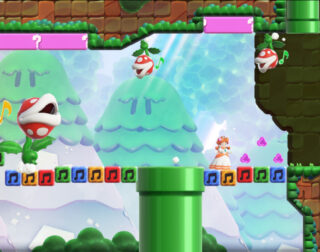Have you ever played your child’s favorite video game with them?
Conversations often take place around how involved parents and caregivers should be in the lives of their children. Concerns about becoming a ‘helicopter parent’ are common, while others worry about the well-being of their kids if left to their own devices. Each family should determine the balance of independence and structure that works best for them. Involvement and supervision are not always the same thing.
Where a ‘helicopter parent’ may be preoccupied with having constant eyes on their child, an involved parent instead joins them. Research suggests that parents who are involved, particularly when they are not controlling and are promoting autonomy, support their children in becoming better learners. Helping with homework and attending parent-teacher conferences are great ways to get involved in a child’s education. However, learning is not isolated to the classroom, and a child’s overall well-being can be positively influenced by parental engagement. A simple and effective way for a parent to become more engaged with their child is to join them in play.
Play is one of the most overall beneficial activities a child can do.
Studies support that the mutual joy and shared attunement between parents and children who play together help to regulate the body’s stress response and promote the development of safe, stable relationships throughout the child’s life. Play is considered critically important in facilitating parent engagement by the American Academy of Pediatrics, with benefits across the lifespan. Trust and communication deepen between parents and children, while emotional regulation and behavior patterns improve.
Play can be defined as a voluntary activity that is intrinsically motivated, actively engaging, and fun. Through play, brain structure is directly enhanced and executive functions are improved. Children also practice fine and gross motor skills, socio-emotional awareness, and cognitive skills while engaging in different forms of play.
At LearningWorks for Kids, we believe that children should develop a healthy Play Diet. Balancing different forms of play in a kid’s routine will help them grow in all areas of their life. Notably, digital play is an extremely important component of the modern child’s Play Diet. Being literate in pop culture and technology is essential to social connection in our times! When engaged in play, children enter a mental state of flow that has a number of significant benefits. Flow exists at the intersection of skill and challenge, and for many children, video games are a great way to get in that zone.
Gaming with your child is a great way to bond and support growth.
When incorporated mindfully, digital play such as video games can directly support the development of various executive functioning skills. For example, on our site, we offer courses that use video games as a medium to address and improve executive functioning. While these courses help kids build awareness around certain skills, the lessons prove most effective when parents are involved in the process. Regular shared play between parents and children helps to build strong, meaningful relationships and experiences. The brains of everyone involved get biological benefits. Plus, these opportunities to connect help to positively reinforce the skills that children are learning in school, with friends, and on their own.
As of 2015, 72% of teens in the U.S. reported regularly playing video games, and it can be assumed based on current trends that the number has continued to steadily increase. That aspect of their life shouldn’t have to be isolated from the relationships they have with their families. Rather, parents who are involved in their children’s digital playtime can build overall stronger relationships while supporting development in effectively all domains.
Want to learn more about our digital play-based curriculum? Check out our site here for video game courses that promote executive function development!








Thank you for sharing a ice Blog, valuable topic.